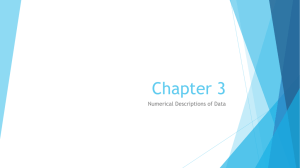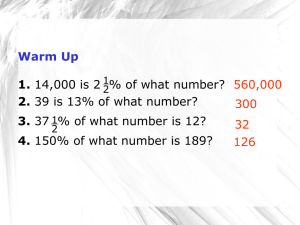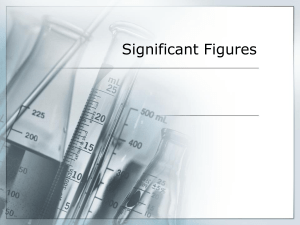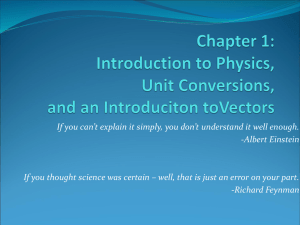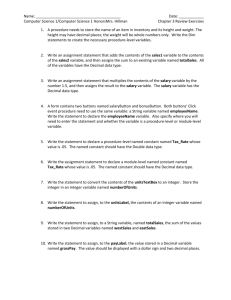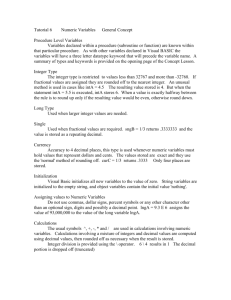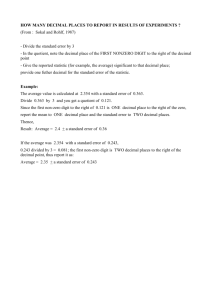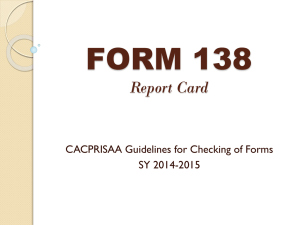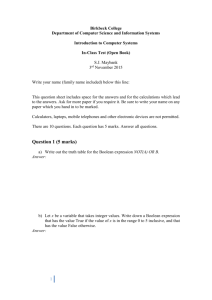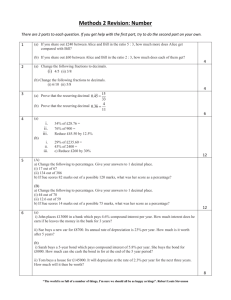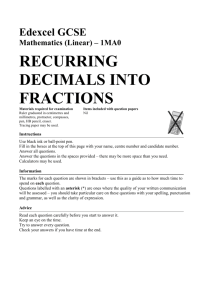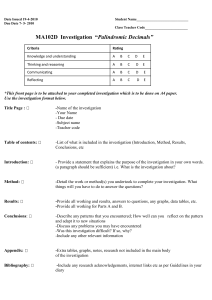Trial and Improvement
advertisement
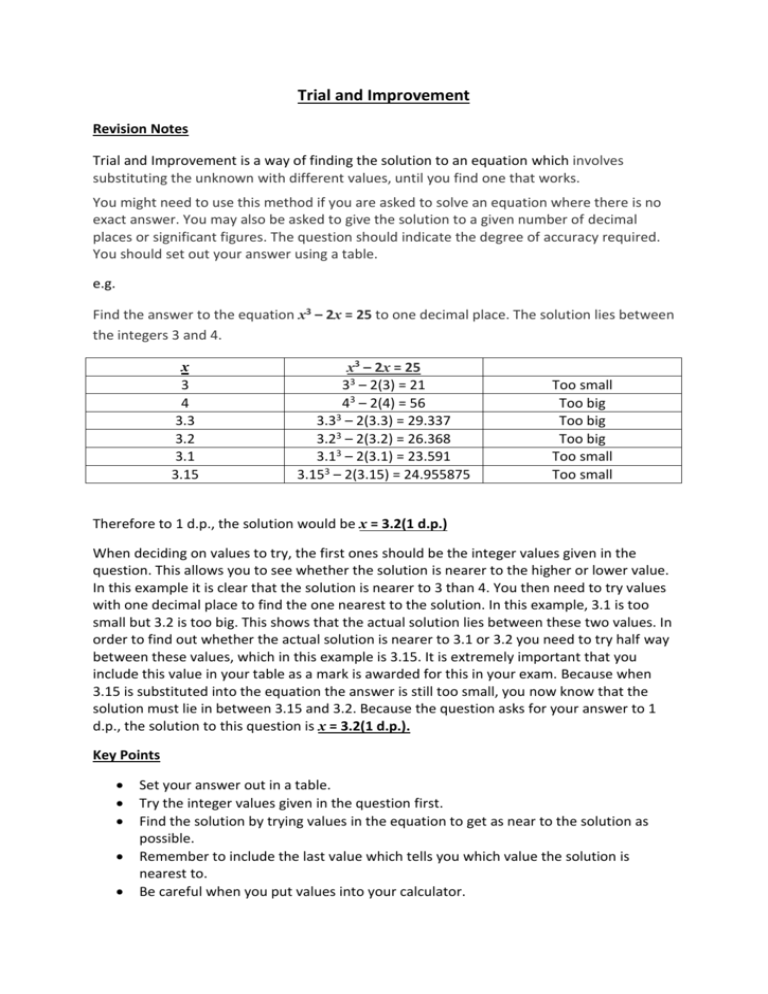
Trial and Improvement Revision Notes Trial and Improvement is a way of finding the solution to an equation which involves substituting the unknown with different values, until you find one that works. You might need to use this method if you are asked to solve an equation where there is no exact answer. You may also be asked to give the solution to a given number of decimal places or significant figures. The question should indicate the degree of accuracy required. You should set out your answer using a table. e.g. Find the answer to the equation x3 – 2x = 25 to one decimal place. The solution lies between the integers 3 and 4. x 3 4 3.3 3.2 3.1 3.15 x3 – 2x = 25 33 – 2(3) = 21 43 – 2(4) = 56 3.33 – 2(3.3) = 29.337 3.23 – 2(3.2) = 26.368 3.13 – 2(3.1) = 23.591 3.153 – 2(3.15) = 24.955875 Too small Too big Too big Too big Too small Too small Therefore to 1 d.p., the solution would be x = 3.2(1 d.p.) When deciding on values to try, the first ones should be the integer values given in the question. This allows you to see whether the solution is nearer to the higher or lower value. In this example it is clear that the solution is nearer to 3 than 4. You then need to try values with one decimal place to find the one nearest to the solution. In this example, 3.1 is too small but 3.2 is too big. This shows that the actual solution lies between these two values. In order to find out whether the actual solution is nearer to 3.1 or 3.2 you need to try half way between these values, which in this example is 3.15. It is extremely important that you include this value in your table as a mark is awarded for this in your exam. Because when 3.15 is substituted into the equation the answer is still too small, you now know that the solution must lie in between 3.15 and 3.2. Because the question asks for your answer to 1 d.p., the solution to this question is x = 3.2(1 d.p.). Key Points Set your answer out in a table. Try the integer values given in the question first. Find the solution by trying values in the equation to get as near to the solution as possible. Remember to include the last value which tells you which value the solution is nearest to. Be careful when you put values into your calculator. Exam Questions Q1. The equation x3 + 2x = 110 has a solution between 4 and 5 Use a trial and improvement method to find this solution. Give your answer correct to one decimal place. You must show ALL your working. x=...................... (Total for Question is 4 marks) Q2. The equation x3 – 6x = 72 has a solution between 4 and 5 Use a trial and improvement method to find this solution. Give your answer correct to one decimal place. You must show all your working. x= ...................... (Total for Question is 4 marks) Q3. The equation x3 − 3x = 15 has a solution between 2 and 3 Use a trial and improvement method to find this solution. Give your answer correct to 1 decimal place. You must show all your working. x =. . . . . . . . . . . . . . . . . . . . . (Total for Question is 4 marks) Q4. The equation x3 + 10x = 23 has a solution between 1 and 2 Use a trial and improvement method to find the solution. Give your answer correct to one decimal place. You must show all your working. x=...................... (Total for Question is 4 marks) Q5. The diagram shows a cube and a cuboid. All the measurements are in cm. The volume of the cube is 100 cm3 more than the volume of the cuboid. (a) Show that x3 – 10x = 100 (2) (b) Use a trial and improvement method to find the value of x. Give your answer correct to 1 decimal place. You must show all your working. x=...................... (4) (Total for Question is 6 marks)
